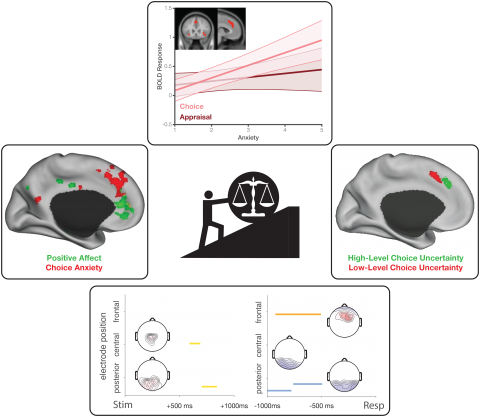This project seeks to investigate the process by which people engage in cost-benefit decision-making, and why such decisions are cognitively demanding. Researchers study these questions using computational models and measures of behavior and neural activity (EEG and fMRI) that allow them to examine components of the decision-making process as it unfolds, and to examine how decision-making interacts with other ongoing cognitive processes.
By studying the corticostriatal circuits involved in evaluating our options, choosing between those options, and monitoring our uncertainty over these choices, researchers aim to also provide a better understanding of the role these circuits play in higher-level decisions about how to allocate our cognitive resources given their potential costs and benefits.
7
Publications
supported by COBRE funds

